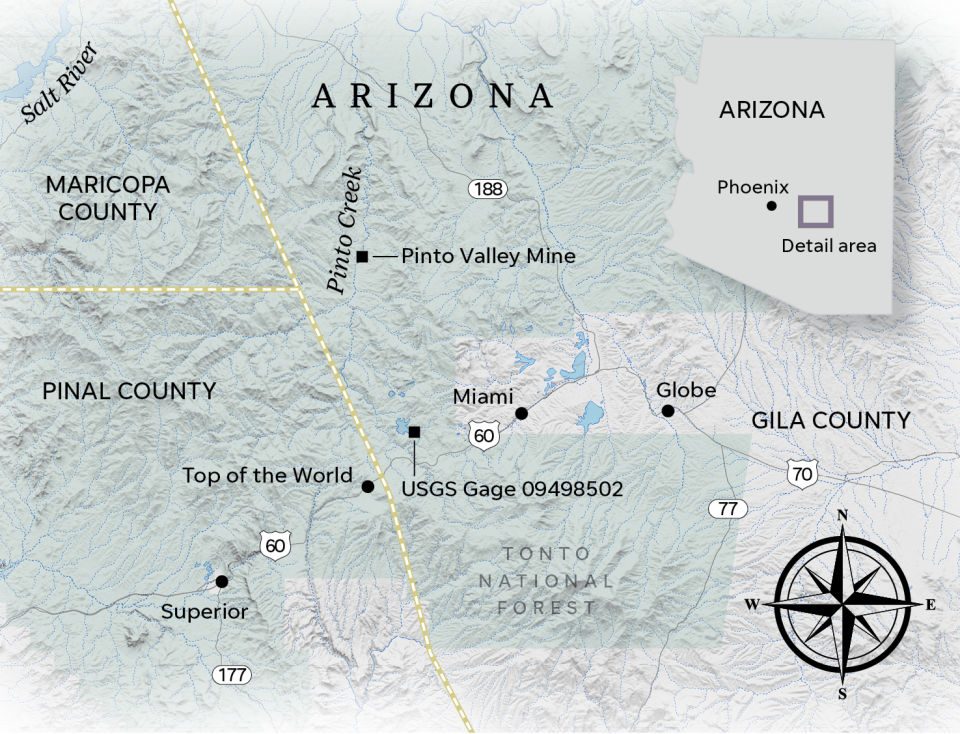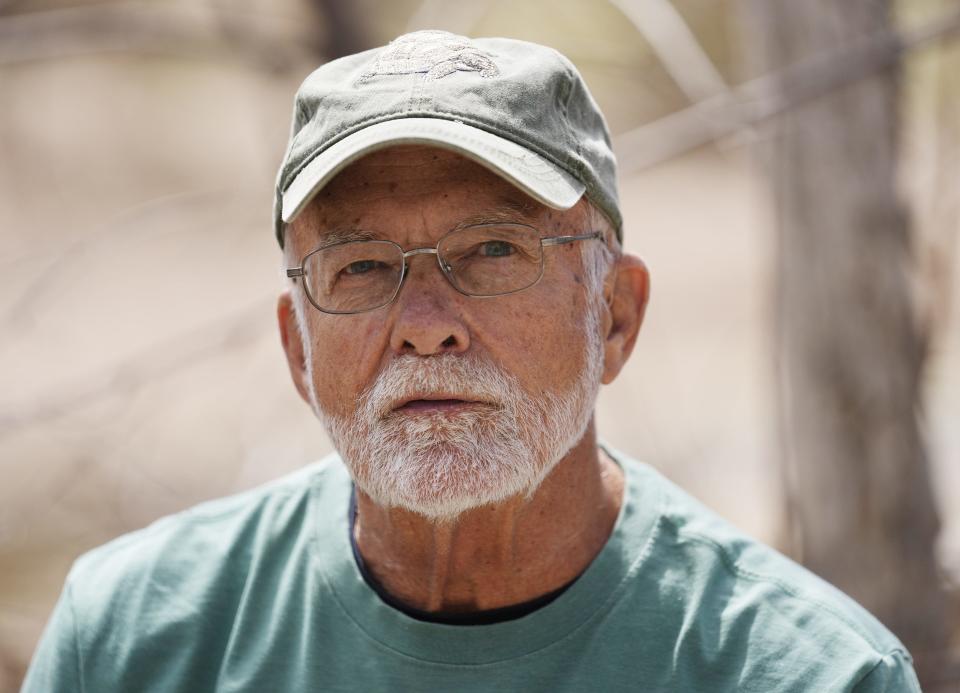A rare Arizona creek is dying after a mine pumped groundwater. Environmentalists are pushing back
Two years after The Arizona Republic first revealed that federal officials allowed a mining company to pump so much groundwater that it drained a rare desert watershed, environmentalists are taking legal action to save the dying Pinto Creek.
Former Arizona Gov. Bruce Babbitt, a Democrat, started the legal effort with a retired forest service ranger after he read The Republic's investigation in 2022, he said. He and the ranger, Rich Martin, enlisted the legal firm Earthjustice to challenge the government's decision to allow a mining company to expand in Tonto National Forest.
Martin has been working for years to save Pinto Creek, a small but vital channel that cuts through remote mountains near the town of Miami north of U.S. 60 and then dumps into Roosevelt Lake. Salt River Project stores water in that lake for customers in the Phoenix area.
Earthjustice filed a notice of intent to sue the U.S. Forest Service and Fish and Wildlife June 11, which gives the government 60 days to begin reevaluating its decision that the group argues violates the Endangered Species Act.
The government had concluded that the mine could expand without hurting endangered species such as the western yellow-billed cuckoo and southwestern willow flycatcher. Earthjustice said the ruling was "arbitrary and capricious."
The mine's groundwater pumping will drain more habitat than the government considered and the mine's proposed mitigation measures "do not come close" to offsetting its harm, according to the filing.

As The Republic reported in 2022, Forest Service officials largely put the onus for protecting the creek on the company doing the mining.
Furthermore, the government didn't consider climate change-driven problems that will exacerbate harm to the delicate ecosystem, according to the Earthjustice filing.
If the government does not reevaluate the full scope of harm the mine expansion could cause to those species, Earthjustice will sue.
"Without you and Rich this would never have happened," Babbitt wrote in an email to The Republic.

A rare, 'magical place'
The creek once fed a ribbon of lush, green vegetation along its path, but groundwater that feeds the stream dropped by 82% between 2013 and 2018 and many trees that provided a cooling canopy went with it.
Babbitt said the stream was once a "magical place."
"You have to look a long ways to find running water and riparian habitats in the Sonoran Desert," he said.
Riparian areas are the sweet spot where land meets a river or a stream. They make not only charming places to sling a hammock and read a book, but support some of the most diverse ecosystems. In Arizona and New Mexico, up to 80% of all animals depend on them at some point in their lives.
But only about 2% of all national forest land in the Southwest is riparian.

Pinto Creek began to dry up just two months after Capstone Copper, a Canadian company purchased the mine. Capstone did not reply to an email seeking comment for this article. The Forest Service, U.S. Fish and Wildlife and Department of Justice declined to comment.
The Forest Service could have enforced its water right to maintain flows in the stream — a designation that Martin and his retired colleagues secured decades prior — but existing leaders didn't do that.
"Here it's such an egregious misuse of water resources, where not only are they pulling water out of a source of municipal water for Phoenix but they're dewatering a creek that hosts endangered species," said Tom Delehanty, lead attorney. "The goal is not to stop mining. The goal is to ensure that mining happens in an environmentally responsible way."
Reach Caitlin McGlade at caitlin.mcglade@arizonarepublic.com. Follow her on X @caitmcglade.
This article originally appeared on Arizona Republic: Earthjustice may sue federal agencies over dying Pinto Creek in Ariz.

